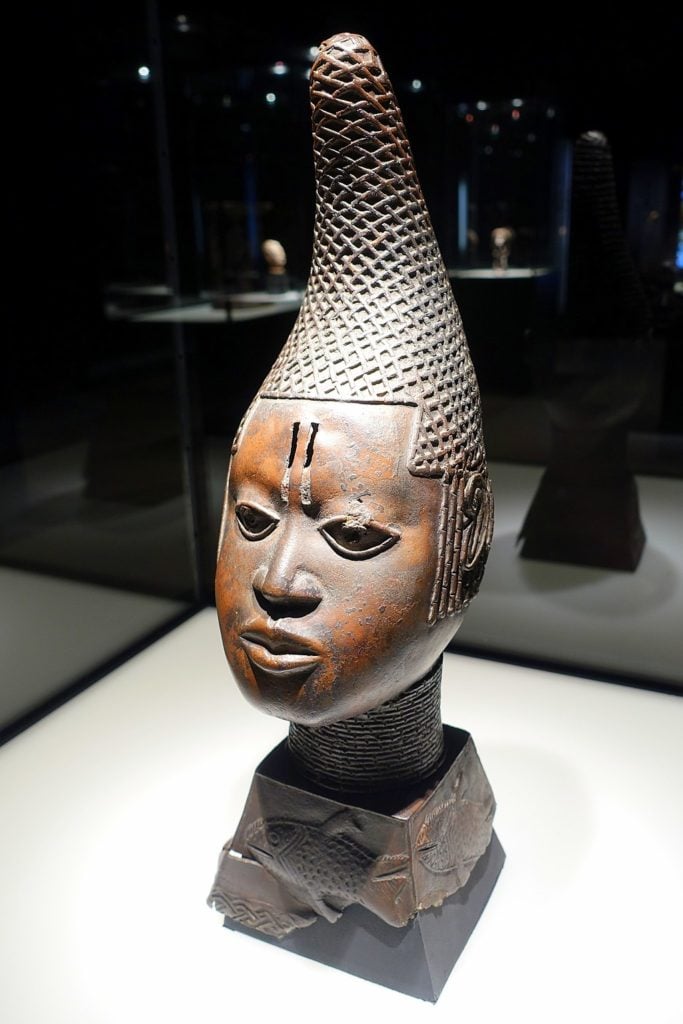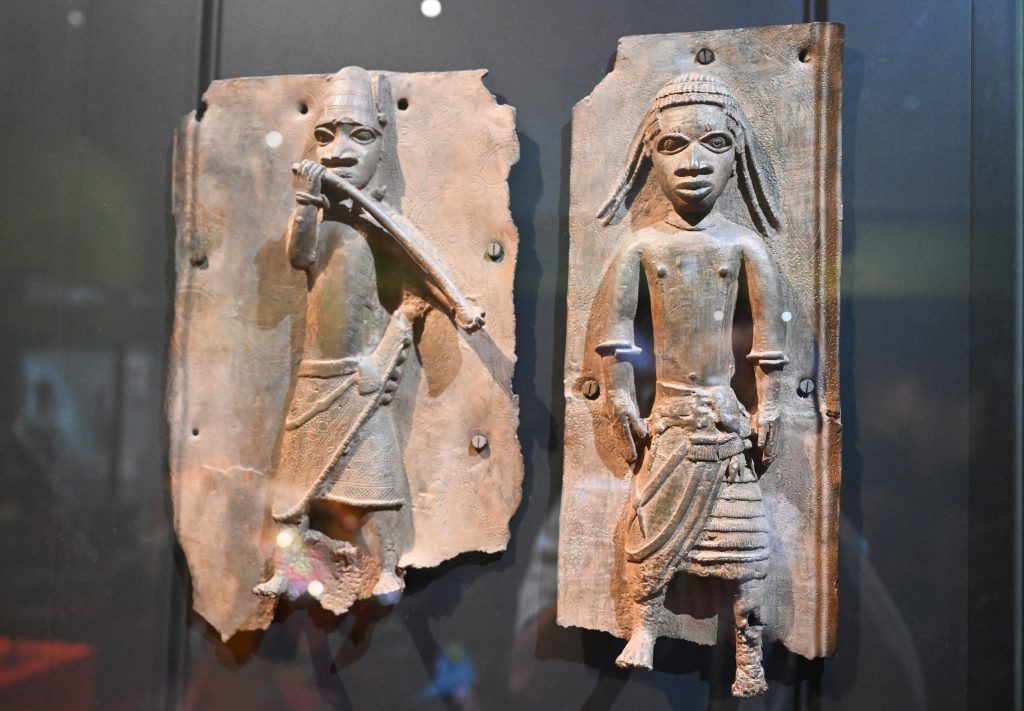Law & Politics
Concluding a Slate of Negotiations, Germany and Nigeria Plan to Sign an Agreement on the Return of Benin Bronzes From Berlin
The negotiations mark another chapter in the ongoing saga of Nigeria's efforts to secure the Benin bronzes.

The negotiations mark another chapter in the ongoing saga of Nigeria's efforts to secure the Benin bronzes.

Vittoria Benzine

Just over a year after Germany announced it would repatriate looted Benin bronzes back to Nigeria, the two nations have concluded negotiations on repatriation and will sign off on paperwork next week before treasures from the Ethnological Museum in Berlin are returned to their proper home.
The German government announced today that on July 1, Foreign Minister Annalena Baerbock and Culture Minister Claudia Roth will sign a memorandum of understanding with their Nigerian counterparts, Zubairo Dada and Lai Mohammed, which “paves the way for the transfer of ownership of the Benin bronzes.”
The news follows a statement released last week by the Prussian Cultural Heritage Foundation (SPK) announcing that negotiations between Germany and Nigeria had concluded. Numerous artifacts will return to Nigeria before the end of this year; some will remain on long-term loan at the Humboldt Forum.
“The fact that Nigeria is willing to loan Germany high-quality items shows that we have built trust,” said SPK president Hermann Parzinger. “We are proud to be able to show these treasures of world culture in the Humboldt Forum.”

Benin bronzes exhibited in the Linden Museum. The ethnological museum houses 78 objects, including 64 bronzes, from the former royal house of Benin. (Photo by Bernd Weißbrod/picture alliance via Getty Images)
British soldiers stole legions of Benin bronzes during a fiery 1897 punitive raid on the Benin Royal Palace. Since then, the regal bronze and ivory sculptures were traded across museums around the Western world: official counts last May located 173 Benin bronzes at the Weltmuseum in Vienna; 136 at the Museum of Archaeology and Anthropology in Cambridge, U.K.; and a staggering 928 at the British Museum in London.
Former German Culture Minister Monika Grütters kicked off the country’s repatriation initiative in April 2021, spurring institutions throughout the Global North to reassess their own collections. Since then, the Smithsonian Institution and Glasgow Museum have made moves to deaccession stolen bronze holdings. Hamburg became the first German city to return its share of the works after a goodbye exhibition.
There is no word yet on which pieces will return home and which will stay in Berlin, but in last week’s release, Parzinger sought to reassure critics.
“The objects that are not intended to be on loan are to be returned as with the Nigerian side as quickly as possible.”
“The restitution of cultural assets cannot heal the wounds of brutal colonial rule,” Roth added. “But it is a first step toward a new way of dealing with a past that has been largely ignored until now. People all over the world have a right to have access to their own cultural heritage. They should be able to decide for themselves how this is preserved and passed on to future generations.”